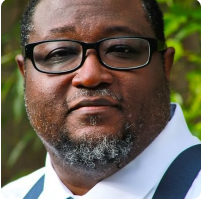Friday, April 13, 2012
Doctoral Confessions: 14 Years Later
By Dr. Shira Leibowitz
“Doctoral confessions” is a series of stories started by my twitter friend, Will Deyamport (@peoplegogy) on the good, the bad and the ugly in pursuing a doctorate. Will, currently in the final stages of his doctorate, refers to those of us who have graduated as “brave souls”. I think it’s more honest to call us “persistent souls”. There are surely much more difficult experiences in life than pursuing a doctorate. Getting a Ph.D. doesn’t require bravery; just time and patience.
I hadn’t intended to start a doctorate. It was the early 90’s and I was a rabbinical student, not yet sure how I would craft a career. I taught religious school as a means of supporting myself and found I loved being in the classroom; adoring the middle school students I taught. To improve my teaching skill, I added to my schedule as many education electives as I could. I found myself drawn to education.
At the time, the field of Jewish education seemed to be expanding and there was great demand for qualified Jewish educators to serve in a range of settings. My school, The Jewish Theological Seminary, among other institutions was asked to produce doctoral students capable of becoming educational leaders. Apparently, I was gaining a reputation for holding educational promise. The chair of the education department, with whom I took a course, invited me to lunch. Would I be interested, he asked, in a full scholarship along with a living stipend to pursue a doctorate in Jewish education? It was an offer I couldn’t refuse.
The experience was a dream come true. I continued rabbinical school, with the cost of classes covered as part of the same scholarship I received for my doctoral studies. I engaged in learning with professors and colleagues who stretched my thinking. I read countless books and journal articles that were meaningful and thought provoking.
Do I have “war stories” – the bad and the ugly as it were? Well, of course I do. There was the German exam I failed miserably, finally squeaking through the language requirement with a B- (by the skin of my teeth) in two semesters of German. There was the moment I and three colleagues in my program approached our department to schedule our comprehensive exams, following six months of intensive study, only to be told the department had a new literature list and we would need to begin our exam prep anew. We protested that decision and were allowed to take the exam on the material we had initially been told to learn. There were the demanding years of intensive writing, critique and revising. Through it all, I always felt privileged both for the opportunity to learn and for the potential to contribute.
Now, looking back 14 years into the past, the pain of grueling hours, days and years of writing almost forgotten, I wonder whether the intensive academic study prepared me for real challenges in real schools. Hubris aside at being able to call myself Dr., I question whether the study made me a better educator today than I would have been without pursuing the doctorate.
I suppose the answer is yes – my academic training has helped me become a more effective educator.
I can read and apply educational research utilizing critical thinking honed in my doctoral program. I can ask good questions. I can research and I can write. I can assess the quality of data and utilize data to formulate hypotheses and opinions. I can recognize the possibility of multiple interpretations of the same data. I am open to differing perspectives.
And, I suppose the answer is also no – my academic training is not primarily what makes me an effective educator.
I wasn’t prepared to support a child excluded by peers or frustrated by work that is too challenging or not challenging enough. I wasn’t instructed in ways of assisting a parent saddened by a child’s difficulties or angered by a school decision. I wasn't shown ways of empowering teachers stiving to meet ever rising demands. I wasn’t made ready to allocate insufficient financial resources during economically trying times. Perhaps most significantly, I wasn’t equipped to lead the cultural change required in response to the rapid changes our world has experienced in the past fourteen years since I received my Ph.D. All of that I have learned from experience.
Was receiving a doctorate worth the effort? Absolutely! Was it sufficient? Not by a long shot. Are there other paths to becoming an effective educational leader? Of course! Am I still grateful for the opportunity I received? Unquestionably; grateful and ever-committed to utilizing the gifts given me in order to make a contribution for the sake of our children.
Shira Leibowitz has served as Lower School Principal of Schechter Westchester in White Plains, New York since August, 2000. She holds a Ph.D in education and a rabbinical degree from the Jewish Theological Seminary of America as well as a B.A. from Cornell University. Dr. Leibowitz is a speaker and writer on educational topics with particular interest in character and values education. Dr. Leibowitz trains in Tae Kwon Do and has earned her Black Belt. She lives with her husband and two teenage children. You can follow Dr. Leibowitz on twitter @shiraleibowitz where she is co-moderator of the weekly chat #educoach on the topic of instructional coaching.
Subscribe to:
Post Comments (Atom)


No comments:
Post a Comment